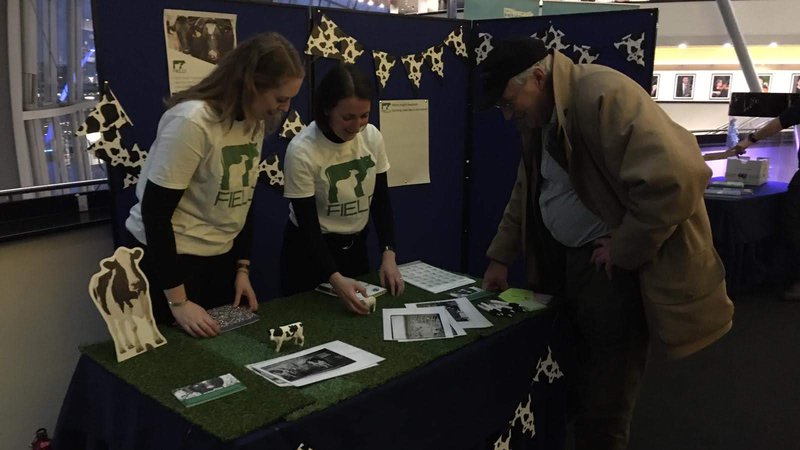The future of farming

- bclark
- 27 Jan 2020
Researchers from the FIELD team ran an activity at the Royal Society “You and the planet” event at the Sage Gateshead on Thursday 23rd January.
The Royal Society “You and the planet” series is using five events across the UK examining key topics that will define our future. From how we grow and consume food, to the biodiversity of the environment around us, the series reviews the state of the planet as it is now and what needs to be done to create a sustainable future.
The event attended by the FIELD team focused on food and the relationship between what we eat and how it affects the planet. Chaired by chef and broadcaster Hugh Fearnley-Whittingstall, as well as pioneering food industry personnel (Dr Juha-Pekka Pitkänen from Solar Foods) and leading academics on nutrition policy and international development (Prof. Corinna Hawkes and Prof. Gordon Conway), a range of topics were covered. This included what we should (and should not) be eating, whether there is a role for farming (and livestock farming in particular), and how we should all be taking actions to change what we eat to protect the panel, for example by educating younger generations. Prior to the event, local researchers provided a number of activities to engage the audience with their research, highlighting how we are working towards a more sustainable food and farming future.
FIELD social scientists Amy and Beth explored the past, present and future of livestock production that they are researching as part of the project. Using images of the UK farming past as prompts for discussion, conversation focused on present-day farming, and what livestock production might look like in the future. Dr Proctor said “The conversations we had with members of the public who participated in the activity were hugely revealing of how much interest there now is around food, how it is produced and what the implications of this might be for farming and farming landscapes”
The activity led to lots of interesting discussions with an engaged and motivated audience surrounding food. All involved though the opportunity highlighted how keen members of the public are to learn about how farming and its consequences for what we should be eating.
For those that could not attend, the full panel discussion can be found here on the Royal Society website.